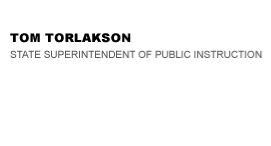Behavioral Intervention Letter, March 27, 2014


Official Letter
Official Letter
Dear Special Education Local Plan Area Directors, Special Education Administrators of County Offices of Education, Nonpublic School and Agency Administrators, and Other Entities Providing Related Services to Special Education Students:
Requirements for Personnel Involved in Behavioral Intervention
Assembly Bill 86 (AB 86), the Education Omnibus Trailer Bill, Chapter 48, Statutes of 2013, repealed regulations and added state statutes that addressed requirements and restrictions concerning student behavioral intervention. The result of these changes was to modify the Behavioral Intervention Plan mandate to align it more closely with federal law and reduce unnecessary costs, while maintaining key protections for students with disabilities related to behavioral intervention.
In accordance with Assembly Bill 110, California’s 2013–2014 budget bill, the California Department of Education (CDE) is required to provide oversight of, and technical assistance and monitoring to, local educational agencies regarding changes to the requirements related to the identification and provision of behavioral intervention services.
This correspondence provides clarification regarding preparation and/or licensure requirements for individuals involved in behavioral intervention. Three areas are addressed separately below: assessment, development and implementation. These elements require varying levels of expertise and training, consequently each element carries specific preparation and/or licensure requirements for the individuals assigned to them.
Requirements for Individuals Assigned to Perform Behavioral Assessments
Education Code (EC) Section 56320(b)(3) establishes that assessments of students with exceptional needs “are administered by trained and knowledgeable personnel and are administered in accordance with any instructions provided by the producer of the assessments, except that individually administered tests of intellectual or emotional functioning shall be administered by a credentialed school psychologist.” Assessments must “be conducted by persons competent to perform the assessment, as determined by the local educational agency” (EC Section 56322).
In addition, the Education Code states that “a person recognized by the national Behavior Analyst Certification Board as a Board Certified Behavior Analyst (BCBA) may conduct behavioral assessments . . . for individuals with exceptional needs”(EC Section 56525(a)). However, educational entities are not required to use a BCBA to perform a behavioral assessment, indicating that other “trained and knowledgeable” personnel may perform behavioral assessments (EC Section 56525(b)). It should be noted that the California Commission on Teacher Credentialing standards relating to preparation for the School Psychology credential state that candidates must be well versed in a variety of assessment methods, including behavioral assessment.
Requirements for Individuals Assigned to Develop Behavioral Intervention
California education law established requirements for individuals assigned to design and plan behavioral interventions long before the passage of AB 86. Those requirements continue to be in effect. Specifically, pursuant to California Code of Regulations (CCR), Title 5, Section 3051.23(a), behavioral intervention shall be designed or planned by personnel who hold one of the following:
- Pupil Personnel Services Credential in School Counseling or School Psychology (issued by the California Commission on Teacher Credentialing (CTC))
- Credential authorizing the holder to deliver special education instruction (issued by the CTC)
- License as a Marriage and Family Therapist (MFT) (issued by the Board of Behavioral Sciences (BBS) within the Department of Consumer Affairs)
- License as a Clinical Social Worker (issued by the BBS)
- License as an Educational Psychologist (issued by the BBS)
- License in Psychology (issued by the California Board of Psychology within the Department of Consumer Affairs)
- Master’s Degree in Education, Psychology, Counseling, Behavior Analyst, Behavior Science, Human Development, Social Work, Rehabilitation, or in a related field, issued by a regionally accredited post-secondary institution of higher education.
Also, given that a BCBA may both “conduct behavioral assessments” and “provide behavioral intervention services” (EC 56325(a)), it seems implicit that a BCBA may also “design or plan” behavioral interventions.
Requirements for Individuals Assigned to Implement Behavioral Intervention
California education law also previously established requirements for individuals assigned to provide behavioral interventions, including implementation of behavior plans. Pursuant to 5 CCR Section 3051.23(b), individuals who provide behavioral intervention, including implementation of behavior plans, must either be qualified to design or plan behavioral intervention, as noted above, or must be under the supervision of an individual qualified to design or plan behavioral intervention and meet other requirements, Specifically, individuals assigned to provide behavioral intervention, including implementation of behavior plans, must either:
- Be qualified to design or plan behavioral intervention pursuant to 5 CCR 3051.23(a), as described in the section above; or,
- Be under the supervision of an individual qualified to design or plan behavior intervention pursuant to 5 CCR 3051.23(a), as described in the section above, and:
- Possess a high school diploma or its equivalent, and
- Receive the specific level of supervision required in the pupil’s individualized education plan (IEP).
In addition, a BCBA may provide behavioral intervention services (EC 56325(a)).
If you have any questions about this subject, please contact the Special Education Division by phone at 916-445-4613 or by e-mail at BIP@cde.ca.gov.
Sincerely,
Original signed by Fred Balcom. Hard copy of the signed document is available by contacting the Special Education Division's Director's Office at 916-445-4602.
Fred Balcom, Director
Special Education Division
FB: ja
